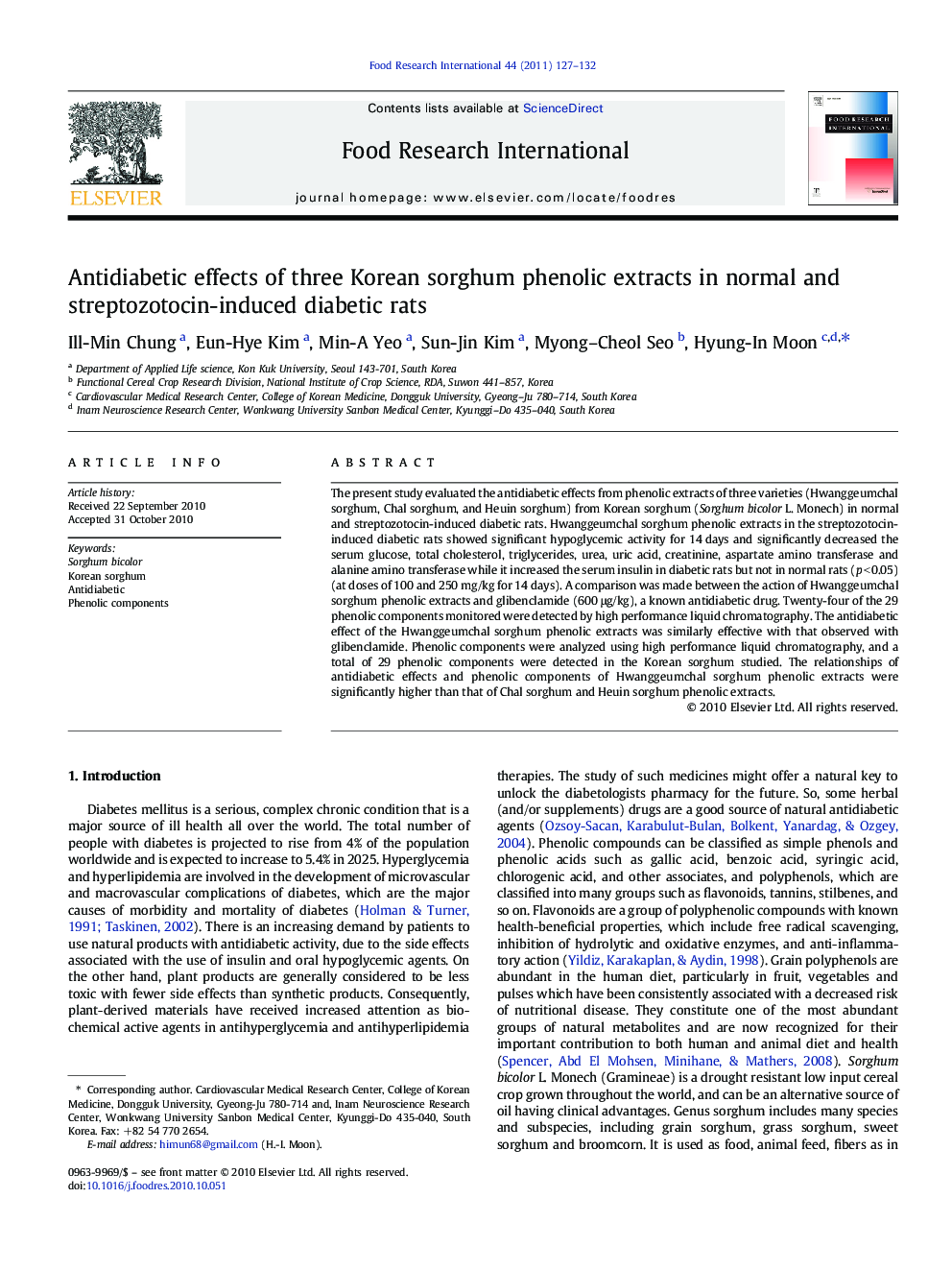| Article ID | Journal | Published Year | Pages | File Type |
|---|---|---|---|---|
| 6399927 | Food Research International | 2011 | 6 Pages |
The present study evaluated the antidiabetic effects from phenolic extracts of three varieties (Hwanggeumchal sorghum, Chal sorghum, and Heuin sorghum) from Korean sorghum (Sorghum bicolor L. Monech) in normal and streptozotocin-induced diabetic rats. Hwanggeumchal sorghum phenolic extracts in the streptozotocin-induced diabetic rats showed significant hypoglycemic activity for 14 days and significantly decreased the serum glucose, total cholesterol, triglycerides, urea, uric acid, creatinine, aspartate amino transferase and alanine amino transferase while it increased the serum insulin in diabetic rats but not in normal rats (p < 0.05) (at doses of 100 and 250 mg/kg for 14 days). A comparison was made between the action of Hwanggeumchal sorghum phenolic extracts and glibenclamide (600 μg/kg), a known antidiabetic drug. Twenty-four of the 29 phenolic components monitored were detected by high performance liquid chromatography. The antidiabetic effect of the Hwanggeumchal sorghum phenolic extracts was similarly effective with that observed with glibenclamide. Phenolic components were analyzed using high performance liquid chromatography, and a total of 29 phenolic components were detected in the Korean sorghum studied. The relationships of antidiabetic effects and phenolic components of Hwanggeumchal sorghum phenolic extracts were significantly higher than that of Chal sorghum and Heuin sorghum phenolic extracts.
